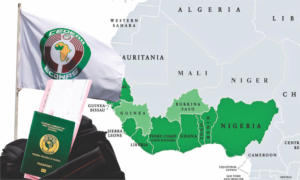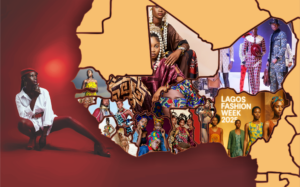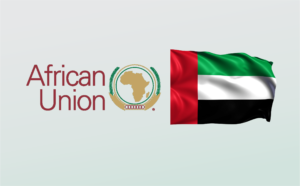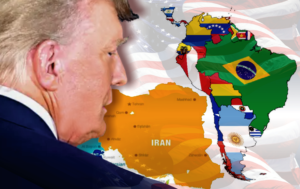Africa in Focus, with Growth, Deals, Structural development in motion and Struggles across a Transforming Continent
From Nigeria’s rising purchasing managers’ index to Rwanda’s bold leap into autonomous air taxis, Africa’s economies are walking a delicate tightrope between resilience and risk. Across the continent this week, governments’ unveiled reforms, struck billion-dollar deals, and offered citizens relief in areas ranging from food prices to consumer protection. Yet persistent headwinds from volatile oil markets and foreign exchange shortages to global tariffs, continue to test the durability of Africa’s growth story.

Nigeria, Balancing Growth and Reform: Nigeria’s economy extended its recovery in July 2025, with the Composite Purchasing Managers’ Index (PMI) climbing to 52.7 points, took the eighth straight month of expansion. Agriculture, bolstered by consistent farming activities, remains the mainstay, while industry and services also showed renewed momentum.
But beneath the positive data lies a tale of economic reinvention. With oil revenues under threat from falling global prices, Abuja is leaning into new partnerships and reforms. A landmark deal with China promises zero tariffs on aquaculture exports and a $2 billion injection into port and maritime development, aimed at creating jobs and repositioning Nigeria as a blue-economy hub.


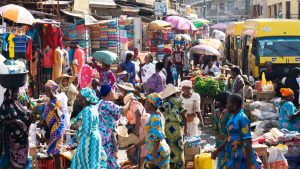
Domestically, regulators are tightening the screws on financial and consumer sectors. The Central Bank of Nigeria created a new Compliance Department to fight financial crimes and ESG risks, while the Federal Competition and Consumer Protection Commission (FCCPC) rolled out tough digital lending rules to shield borrowers from predatory apps.
Perhaps most significant is the fiscal shift underway. For the first time in decades, non-oil revenues surged 40%, accounting for 75% of government income between January and August 2025. Officials frame this as a historic turning point. “We are no longer hostage to oil markets,” one presidency adviser told reporters, emphasizing that higher tax and customs receipts are funding infrastructure, schools, and hospitals.
Ghana, Inflation Eases but the Cedi Falters: Next door, Ghanaians are finally seeing some relief in household budgets. Inflation fell to 11.5% in August, the lowest in four years, thanks to a stronger cedi and easing global cost pressures. Yet the same cedi is under siege, its down to 13% this quarter, as importers scramble for scarce dollars ahead of the festive season.
In the digital space, Accra launched Cybersecurity Awareness Month, underscoring the risks of a rapidly digitizing economy. Losses from cybercrime topped GHS 14.9 million in just six months, highlighting the urgency of tougher enforcement and public awareness campaigns.
![]()
Liberia, Bread-and-Butter Politics: In Liberia, economic policy took on an intensely human dimension. President Joseph Boakai ordered a slashing of rice and flour prices, two staples central to household consumption. By setting flour at $35 per 100-pound bag and rice at $14 per 25kg bag, the government hopes to ease cost-of-living pressures and prevent social unrest. Inspectors are now tasked with enforcing compliance against profiteering traders.
At the same time, Monrovia is deepening cooperation with Ghana in the lottery sector, betting on regional collaboration to expand state revenues.
Togo, Customs Relief and Food Safety: Togo’s measures this week reflected a mix of pragmatism and modernization. Authorities introduced a 20% customs discount on vehicles older than five years, a temporary relief measure designed to decongest ports and spur imports. Meanwhile, the inauguration of a modern livestock market in Tsévié, complete with sanitary and storage facilities, signals efforts to boost food safety and competitiveness in agriculture.
East Africa, Credit, Connectivity, and Carbon Cuts: Kenya’s banking sector is in the midst of sweeping reforms, adopting a risk-based loan pricing model to expand credit access more fairly. At the same time, Kenya has been recognized as one of Africa’s broadband leaders, though gaps in data reporting continue to cloud the picture.
Ethiopia is expanding its tax net with mandatory VAT registration for more businesses, while simultaneously wooing global investors into its mineral sector, which has seen $1.7 billion in fresh deals. Rwanda is perhaps the boldest mover this week: preparing to launch Africa’s first self-flying electric air taxi while also breaking ground on an $80 million waste-to-energy plant.
Southern Africa, Rail, Sugar and Sovereignty: In South Africa, logistics reform is the buzzword as the government rolls out rail privatization measures to unlock millions of tons in mineral exports. Yet sugar farmers face a bitter harvest, squeezed between cheap imports and new U.S. tariffs, with thousands of jobs at risk.
Tanzania celebrated new tourism records with 2.14 million visitors in 2024, while also advancing the East Africa Crude Oil Pipeline to two-thirds completion. Mozambique, meanwhile, received a sobering IMF projection of 2.5% growth in 2025, reflecting fragile recovery despite improved inflation numbers.
Egypt, Stabilization with Global Help: Egypt remained in the headlines with an upcoming IMF review of its $8 billion program, potential new disbursements, and fresh MoUs with Bahrain spanning industry and tourism. Domestically, the government reaffirmed its food subsidy program worth LE165 billion, a social safety net for over 60 million citizens. Car sales also surged 83% year-on-year, reflecting renewed consumer confidence.
![]()
Then the bigger picture is that Africa is at a Crossroads. Across the continent a common theme emerges: African States Are Working To Diversify Economies, Add Value To Commodities And Push For Global Competitiveness. Yet, some structural vulnerabilities unmask shortfalls in different sections across, taking their cues from continuous stubborn instances of foreign exchange constraints to high taxes on aviation, etc.
At the GHIBCONVERGE2025 summit in London, experts issued a stark reminder: Africa continues to lose billions by exporting raw cocoa, cashews, gold, etc., instead of processed products. Similarly, aviation leaders warned that taxes and fees make up 70% of airfare, choking intra-African trade and job creation.


